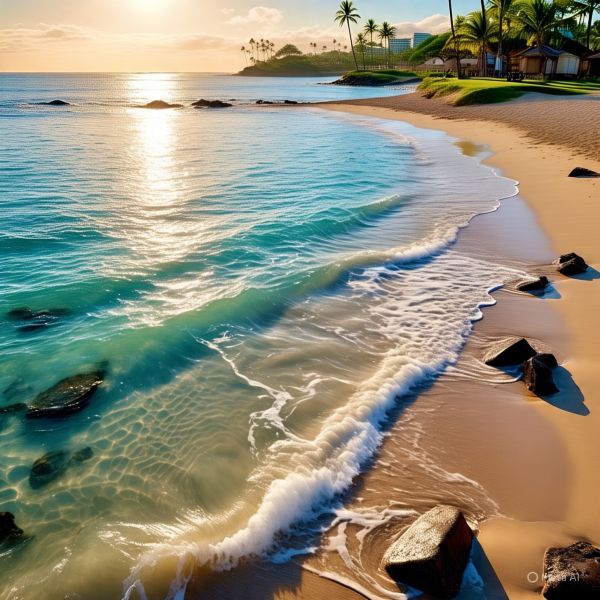Monday, May 19, 2025

Observers noted that Hawaii appeared to be making a fundamental shift in how it views the cost of paradise, suggesting that the latest legislative move was not merely an adjustment in price, but a broader re-evaluation of who should bear the financial burden of preserving the islands. It was being interpreted not only as a new chapter in Hawaiian policy but as a template that could spread globally. Travelers may now be required to factor in significantly higher tax costs, especially when embarking on cruise-based vacations, as Hawaii’s legislation could influence similar initiatives in other parts of the world.
If Hawaii succeeded in defending the measure legally, analysts believed that other destinations such as California, Alaska, and even European coastal cities might explore similar taxation strategies. Governments worldwide had already been grappling with the ecological footprint of tourism, and this bold move may be seen as a new way to make tourism more accountable for environmental damage.
Future Fees on the Horizon?
It was reported that this new tax came amid other legislative efforts targeting Hawaii’s tourism industry, such as the potential use of hotel tax revenue for sewer infrastructure, regulation of access to parks through limited permits, and calls for green fees on air travelers and day visitors. These mounting regulations suggested that Hawaii was in the midst of redefining its relationship with tourism, which some interpreted as necessary adaptation, while others viewed it as making the destination increasingly costly and restrictive for tourists.
Industry insiders expected that this latest policy was not an isolated event but part of a broader environmental and economic repositioning.
Beyond the Islands: A Global Ripple Effect
It had been suggested by policy watchers that the implications of the Hawaii cruise tax might reach far beyond the Pacific. With increasing attention on sustainable tourism, other governments were likely to examine the model and consider how similar mechanisms might work in their regions. The measure thus hinted at a possible global restructuring of tourism economics, with tourists potentially facing higher fees and more restrictive entry models in environmentally sensitive regions.
This marked a shift in the travel industry, where environmental restoration and infrastructure sustainability were beginning to weigh more heavily in pricing structures and itinerary planning.
Environmental Allocation and Public Doubts
Officials explained that the 11% tax on docked ship accommodations would fund various environmental initiatives in Hawaii, such as:
- Restoring natural habitats
- Building climate-resilient infrastructure
- Managing parks and beaches
- Reducing environmental strain caused by tourism
However, critics pointed out that similar environmental funding promises in the past had failed to yield clear results. While the intention aligned with a growing global movement toward sustainability, whether it would translate into effective implementation remained uncertain.
Cost Implications for Cruise Travelers
According to estimates from the travel sector, the new law could cause per-passenger taxes and fees to rise from approximately $200 to $350, representing a 75% increase.
It was widely expected that this cost surge would be passed down to passengers, potentially making Hawaii cruises significantly less attractive, especially compared to other Pacific itineraries that might now appear more economical.
Some industry analysts predicted unchanged demand, citing Hawaii’s unique allure, while others believed that legal uncertainties and price hikes might divert travelers to alternate destinations.
Constitutional Challenges Loom
Legal experts were voicing concern that Hawaii’s law ventured into federal regulatory territory, which traditionally governed taxation and regulation of maritime vessels. Observers noted that the Cruise Lines International Association had already flagged several constitutional concerns:
- The Tonnage Clause, which prevents states from taxing a vessel’s capacity without federal approval.
- The Commerce Clause, which limits state interference in interstate or international trade.
- A federal statute that prohibits non-federal entities from taxing vessels operating in U.S. waters.
This legal perspective suggested a court battle was imminent, with the outcome likely to affect not only Hawaii’s tax regime but also the future legal framework of cruise tourism in the U.S.
The Legal Showdown Begins
Well before the bill had passed, stakeholders in the cruise industry had warned legislators of the potential legal consequences. Legal scholars now believed the dispute was poised to become a landmark case, possibly redefining the legal boundaries of state authority over maritime commerce.
Any ruling on this case could have long-term ramifications on how states manage taxation of tourism vessels, thereby reshaping both domestic tourism policy and international cruise itineraries.
Hawaii’s Green Fee Gains Traction
As of 2025, a new Hawaii law introduced an 11% tax on overnight accommodations aboard docked ships, making it the first time the state officially taxed vessel-based lodging. Described by supporters as a “green fee”, the law directed all revenue toward environmental protection efforts.
This legislation, championed at the state level, was being portrayed as a milestone for conservation and a measure of fairness, with promises that the revenue would help the islands cope with climate change and extreme weather events. The move was dubbed a “legacy moment”, seen as both a financial and ecological recalibration of Hawaii’s tourism economy.






